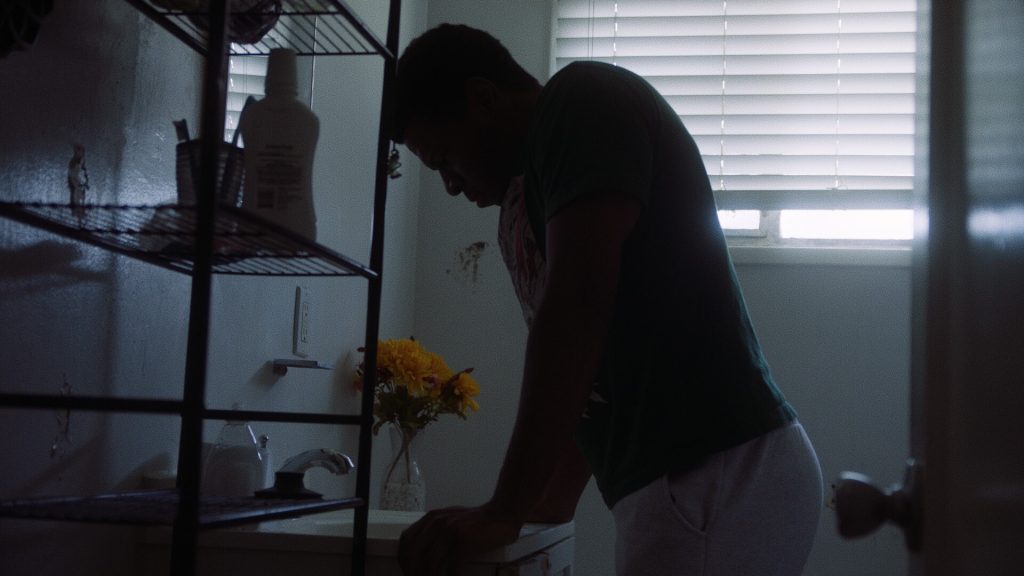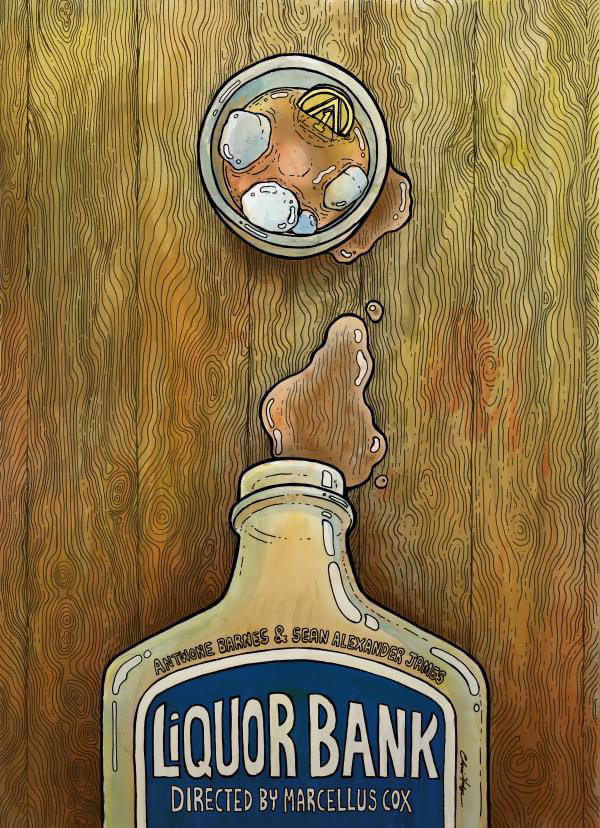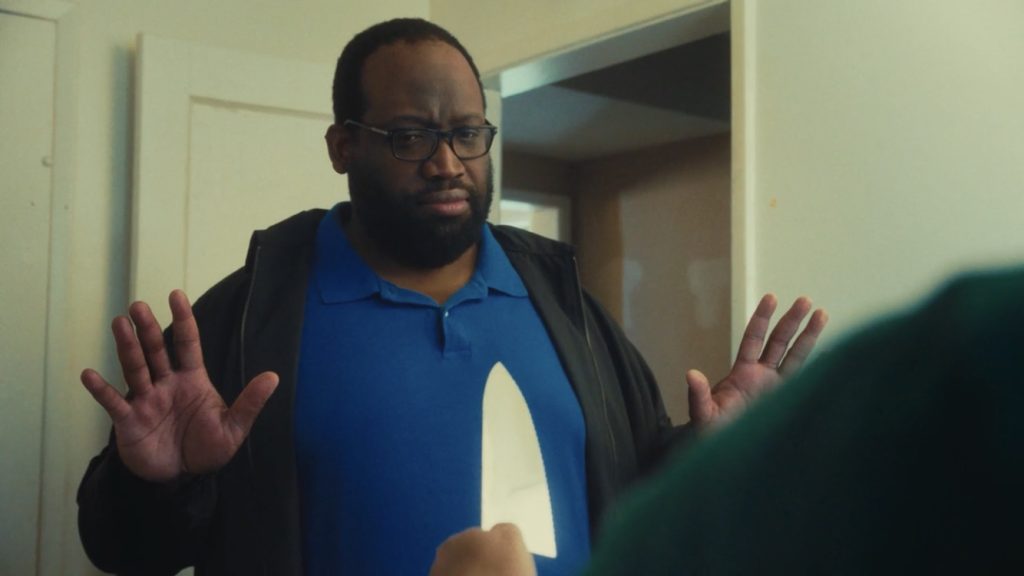Based on the True Story of an Ex-Marine who misses his 1-year sobriety anniversary party at his AA meeting group due to a relapse, this is Marcellus Cox’s short film Liquor Bank.

There have been many movies over the years that deal with alcohol addiction and all of them try to deliver their message in diverse ways. Marcellus Cox’s Liquor Bank chooses to whisper its message, as if we are all being let in on a little secret. Eddie is an ex-Marine, a recovering alcoholic, and on the edge of a relapse. The film shows us that addiction is not a melodrama, but a slow and heavy descent.
Throughout the film’s 15-minute run time, there are no screaming matches, instead there are discussions. We see no tantrums or smashed bottles, but hear lots of sharp words. Our characters are not histrionic; they are simply underplayed, giving us a more natural and believable film. As the writer and director, Marcellus Cox gives us some harsh truths, addiction is a problem that occurs boringly behind closed doors and usually unnoticed by those who don’t have to think about it. Antwone Barnes plays Eddie with a haunting regret in his eyes, they show a certain shame and embarrassment that comes with desperation.
The short has a simple premise, Eddie, on the eve of his one-year sobriety anniversary, is tempted. His sponsor, Baker, played with quiet strength by Sean Alexander James, finds him at this moment of weakness and tries to talk him through it. Baker does not scold or judge, instead, he offers a helping hand. James’ performance is brilliantly restrained. Portraying Baker not as a saviour but as a fellow addict who understands the difficulty of recovery.

Cox’s direction is extremely honest, he doesn’t shy away from the ugliness of addiction but also avoids sensationalising it. The film’s cinematography by Fabian J. Tehrani with its use of shadows and dimly lit spaces, mirrors Eddie’s internal battle with drink. The sparse use of a score means it is never distracting and subtly adds to the emotional weight of each scene. The director and his crew trust the audience to understand the power of silence and what each glance and look, however slight, means.
Liquor Bank avoids the easy conclusions that often plague films about addiction. There is no triumphant moment of redemption, no sudden epiphany that magically cures Eddie’s demons. Instead, the film ends with a sense of uncertainty, an acknowledgment that the battle is constant. The film doesn’t offer answers, because in reality there are no easy answers.

Liquor Bank shines a light on the quiet heroics of those who fight, every day for the simple act of making it through until the next day. A film about human connection, friendship, and the unwavering support of those who refuse to give up on other people. Although in the grand scheme of things Liquor Bank is a particularly small film, thanks to its talented director and two powerhouse performances it carries a big message and delivers it strongly. Addiction can be an horrendous battle for many people but at the end of every dark tunnel there is always some hope.
Leave a Reply